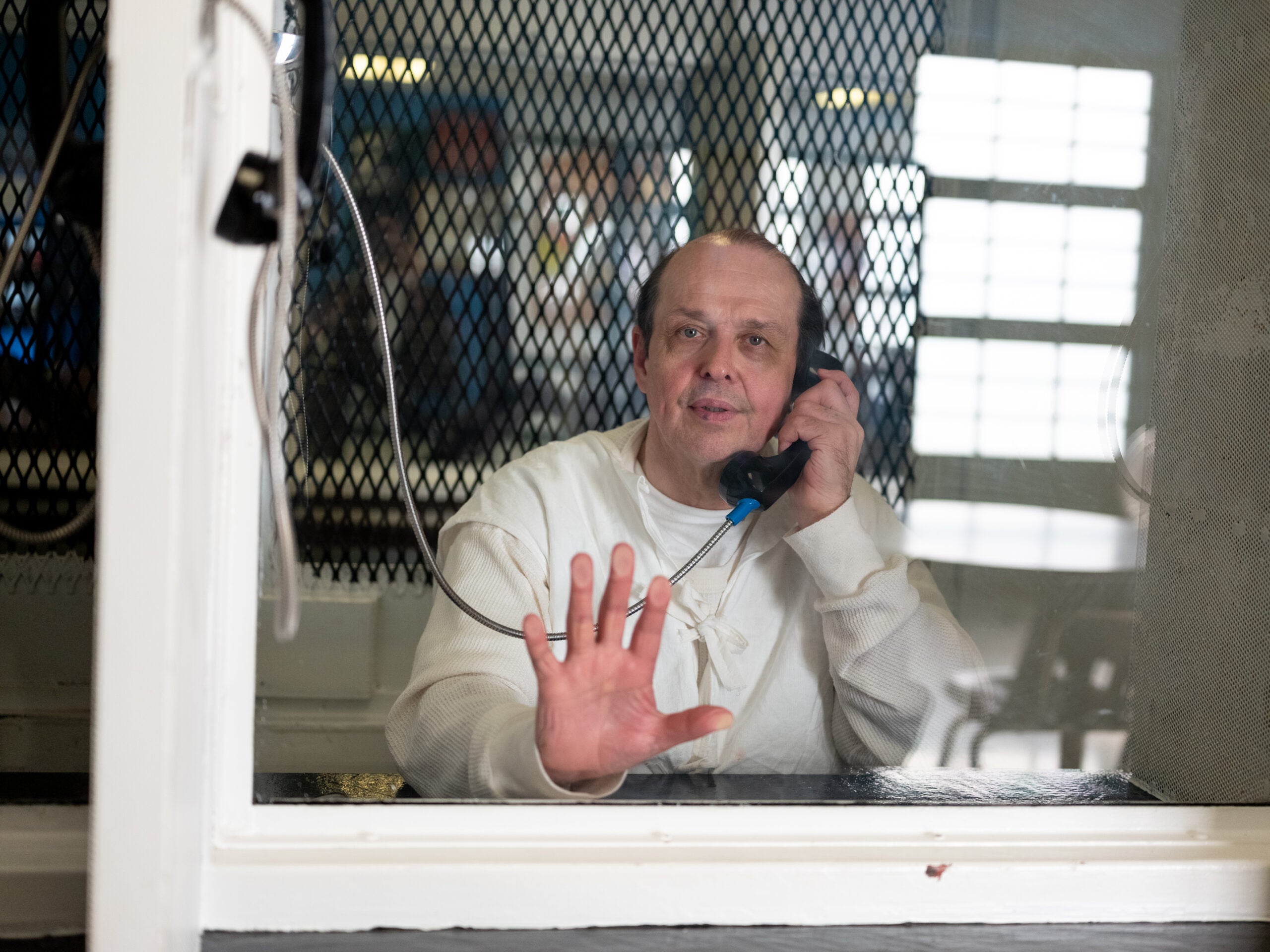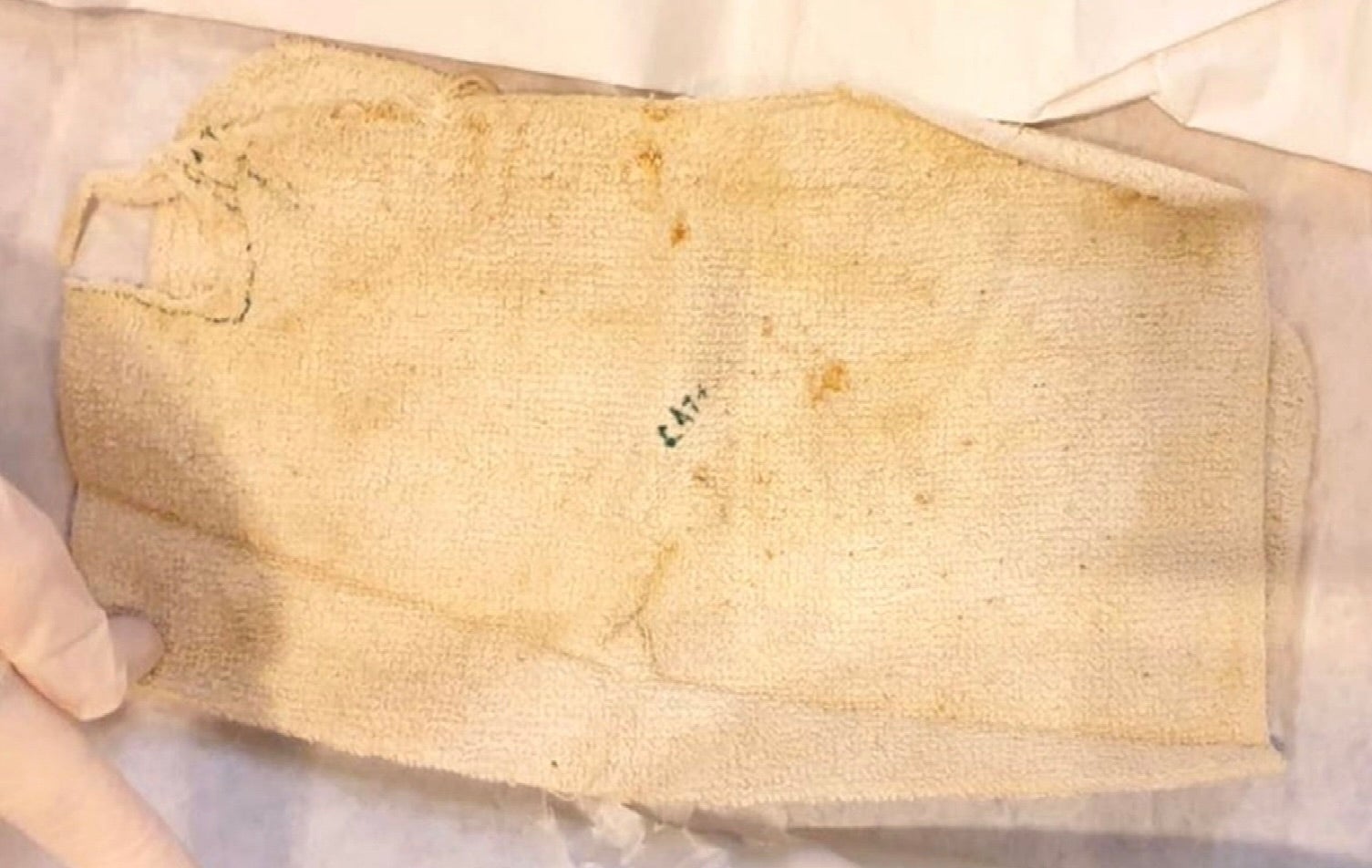The Texas Attorney General’s Office had harsh words for lawmakers trying to stall the execution of Robert Roberson, an autistic death row inmate who they say was convicted of “shaken baby syndrome” using “junk science.”
It is the first time the office has weighed in on the topic since Roberson’s execution via lethal injection was halted last week by the Texas Supreme Court, a civil forum, after the majority of the inmate’s legal avenues had been exhausted.
The court enforced a subpoena for Roberson’s testimony issued by state legislators the night before his scheduled execution. The attorney general’s office has asked the court to reverse the decision allowing Roberson to testify. The court is now taking up further briefing on the matter.
“They have attempted to mislead the public by falsely claiming that Roberson was unfairly convicted,” Ken Paxton, the attorney general, said in a news release, calling the lawmakers’ actions “one-sided, extrajudicial stunts that attempt to obscure the facts and rewrite his past.”
“Nikki was abused by her father and died due to the trauma he inflicted,” the office wrote.
Roberson, 57, was convicted of the 2002 death of his daughter Nikki Curtis. Prosecutors claimed Roberson murdered his daughter by shaking and striking her, resulting in blunt-force trauma, otherwise known as “shaken baby syndrome.”

But a large group of bipartisan lawmakers, medical professionals and advocates — including Dr Phillip McGraw, better known as TV doctor and chat show host Dr Phil — say the child died from a combination of double pneumonia that progressed to sepsis, and prescription medications that are no longer available to children.
Furthermore, there is a lack of evidence of abuse in the case, scientific experts told state officials.
Nikki had been chronically ill throughout her life and suffered from breathing apnea. Roberson took his daughter to get medical care in the days leading up to her death.
On January 31, 2002, Roberson woke up to find Nikki unconscious with blue lips. He rushed her to the hospital but she already had signs of fixed and dilated eyes, which are signs of brain damage. She had minor bruises upon her arrival at the hospital.
Nikki was transported to the Children’s Medical Center in Dallas, where she died the next day.
Lawmakers claim hospital staff took her off life support without consulting Roberson, who had sole custody of Nikki at the time. The child had been taken by Child Protective Services from her mother at birth. The girl’s mother was homeless and addicted to drugs.
Roberson was arrested the day after his daughter died and sentenced to death the following year.
The attorney general’s office released a copy of the original autopsy report filed the day after Nikki’s death. Jill E Urban, the medical examiner, ruled her death a homicide after finding signs of blunt-force injuries on the child typically associated with “shaken baby syndrome,” which can include subdural hematoma, brain swelling and retinal hemorrhages.
Scientists and experts have widely discredited the condition and argue Roberson would not have been charged with a crime today. In 2013, Texas enacted Article 11.073, dubbed the “junk science statute,” enabling the review of wrongful convictions based on junk science. Advocates say the law has not been implemented in the case.
Urban found evidence of hemorrhages in the child’s brain, although “shaken baby syndrome” is not listed in the findings.
In 2016, Urban wrote in a statement: “At no point did I indicate that the decedent had a triad of symptoms — retinal hemorrhages, subdural hematoma and cerebral edema that indicate shaken baby syndrome.” Still, she stood by the child’s cause of death.
The attorney general claimed Roberson had repeatedly changed his story after taking Nikki to the hospital the day before she died, switching between Nikki falling out of bed earlier that morning and hitting her head on a table as an explanation for her minor injuries. He ultimately told officers he didn’t know what had caused his daughter’s injuries.
No one took photos of Nikki on arrival at the hospital. Poor-quality photos taken after Nikki had been resuscitated and intubated did not show a battered child, his attorneys said in response to the attorney general’s statement. At his trial, a doctor from the hospital testified she found minimal bruising, a little chin abrasion and no scars on the child.
The office maintained Roberson had a history of beating his daughter.
But the lead detective who prosecuted Roberson now believes he never beat his daughter or caused her death. He suspected Roberson due to his lack of emotional response at the hospital, which the detective says was likely caused by his autism. Roberson was formally diagnosed in 2018.
The attorney general’s statement also invoked the testimony of a jailhouse snitch who told law enforcement officials Roberson molested his child, an unsubstantiated claim that prosecutors ultimately dropped. The snitch tried to make a deal with the district attorney for testifying on behalf of the state, according to a letter reviewed by The Independent.
Mentioning the unproven accusation should’ve warranted a mistrial, Roberson’s attorney said last week during a 10-hour hearing on the case conducted by the Texas House of Representatives Committee on Criminal Jurisprudence.
In that same hearing, Terre Compton, a juror who had convicted Roberson said she now believes he is innocent. Roberson had been barred from testifying in-person at the hearing.
In response to the attorney general’s statement, members of the state Legislature’s Criminal Justice Reform Caucus offered a point-by-point rebuttal, stating: “One of the only factual statements in the OAG’s release is that the jury lawfully convicted Robert.”
The members wrote that the testimony on Roberson’s history of beating his daughter, provided by his girlfriend, Teddie Cox, was unreliable because of the woman’s mental state at the time. Cox’s sister, Patricia Conklin, took the stand at trial to say that Robert had always been loving and caring to Nikki.

One of the key pieces of evidence used to accuse Roberson of harming his child was a “blood-soaked rag” that Roberson turned over to investigators at his home. In a dramatic moment during the hearing, a lawmaker showed a photo of the rag to the committee.
Roberson’s attorney claimed the few blood marks on the rag could have come from the child’s fall. There were no signs of violence found at the residence.
Additionally, the blunt-force injuries found on Nikki’s body came after days of intense emergency medical treatment and falling off the bed, which had been propped up on cinder blocks. Urban noted in her statement that a short fall could’ve accounted for one of Nikki’s injuries.
When conducting her autopsy report, she did not consider the child’s medical history, emergency room records, surgical implantation of a pressure monitor in Nikki’s head or CT scans.
“Her hasty autopsy was conducted after being told by law enforcement that Robert had been arrested for capital murder and an officer literally sat in on the autopsy itself,” the lawmakers’ statement noted, adding it’s clear the injuries “came from two days of being picked up, moved, and manipulated during emergency procedures.”
By issuing the subpoena, the lawmakers effectively handed Roberson a 90-day reprieve. Governor Greg Abbott had the power to issue a 30-day stay of execution but only released a statement on Roberson’s case on Monday when he condemned lawmakers for violating the state’s separation of powers clause and said they had “stepped out of line.”
The subpoena move was historic and unprecedented.
Roberson currently has very few legal options available to him. The Texas Board of Pardons and Paroles voted against granting him clemency.
The Texas Court of Criminal Appeals could vote to reopen his case on its own. After a ruling on Roberson’s testimony is issued, the Anderson County District Attorney’s Office, which prosecuted the case, can request a new execution date. His legal team would get 90 days’ notice.
Lawmakers are hoping for a new trial.







